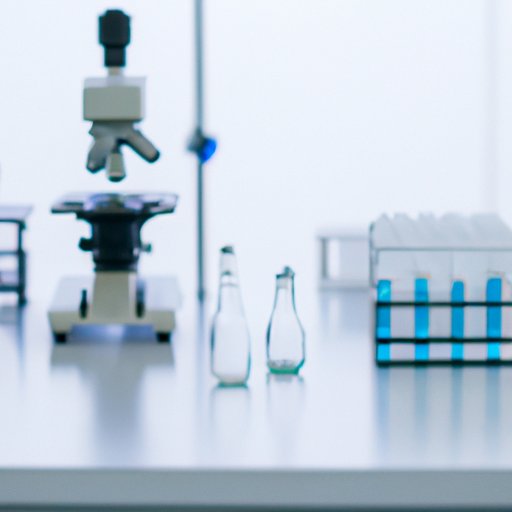Overview of Lab Science: What is It and What Does it Entail?
Lab science is an important branch of scientific study that involves experimentation, observation, and the use of various pieces of laboratory equipment. It is used to explore natural phenomena, develop new technologies, and make new discoveries. Lab science can be applied to many different fields, including biology, chemistry, physics, and computer science.
A. Definition of Lab Science
Lab science is a type of scientific study that involves conducting experiments in a laboratory setting. Experiments are conducted under controlled conditions using specialized equipment and techniques. The purpose of these experiments is to observe, measure, and analyze natural phenomena, and to test theories and hypotheses. Lab science can be used to understand how the world works, to develop new technologies, and to make new discoveries.
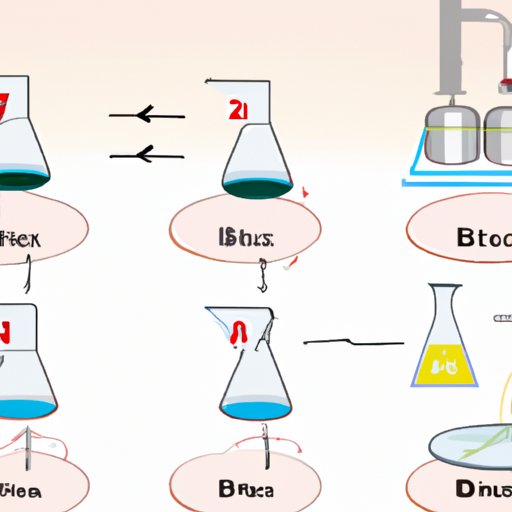
B. Types of Experiments Conducted in Lab Science
The types of experiments conducted in lab science vary depending on the field. For example, in biology labs, experiments may include studying the behavior of cells and organisms, testing the effects of drugs on living organisms, or analyzing genetic material. In chemistry labs, experiments may involve analyzing the properties of substances, observing chemical reactions, or measuring the concentration of elements in a sample. In physics labs, experiments may include studying the motion of objects, measuring the speed of light, or investigating the properties of magnets. In computer science labs, experiments may involve programming computers, testing algorithms, or exploring artificial intelligence.
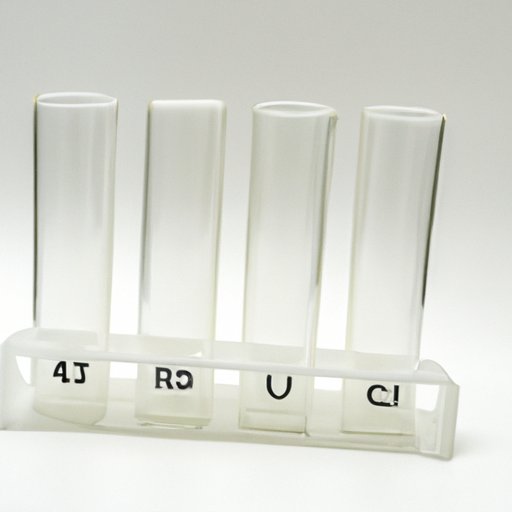
C. Equipment Used in Lab Science
The types of equipment used in lab science also vary depending on the field. Common pieces of equipment used across all fields of lab science include microscopes, beakers, test tubes, and computers. Microscopes are used to observe samples at very small scales, while beakers and test tubes are used to contain and measure liquids. Computers are used to store and analyze data, as well as to program robots and other machines.
Exploring the Different Types of Lab Science Experiments
In this section, we will explore the different types of lab science experiments conducted in each field.
A. Biology Labs
In biology labs, experiments may involve studying the behavior of cells and organisms, testing the effects of drugs on living organisms, or analyzing genetic material. Experiments may also involve manipulating genes, observing the development of embryos, or studying the effects of environmental factors on living organisms. According to a study conducted by researchers at the University of California San Diego, “biology labs allow students to gain hands-on experience with fundamental concepts in biology, while developing their problem-solving skills.”
B. Chemistry Labs
In chemistry labs, experiments may involve analyzing the properties of substances, observing chemical reactions, or measuring the concentration of elements in a sample. Experiments may also involve synthesizing new compounds, studying the effects of temperature on reactions, or exploring the structure of molecules. According to a study conducted by researchers at the University of Michigan, “chemistry labs provide students with an opportunity to gain an understanding of basic scientific concepts and principles.”
C. Physics Labs
In physics labs, experiments may include studying the motion of objects, measuring the speed of light, or investigating the properties of magnets. Experiments may also involve studying the behavior of waves, measuring the force of gravity, or exploring the properties of electricity. According to a study conducted by researchers at Stanford University, “physics labs provide students with an opportunity to explore fundamental concepts in physics and to develop their problem solving skills.”
D. Computer Science Labs
In computer science labs, experiments may involve programming computers, testing algorithms, or exploring artificial intelligence. Experiments may also involve building robots, exploring virtual reality, or studying the effects of data mining. According to a study conducted by researchers at the Massachusetts Institute of Technology, “computer science labs allow students to gain hands-on experience with fundamental concepts in computer science, while developing their problem-solving skills.”
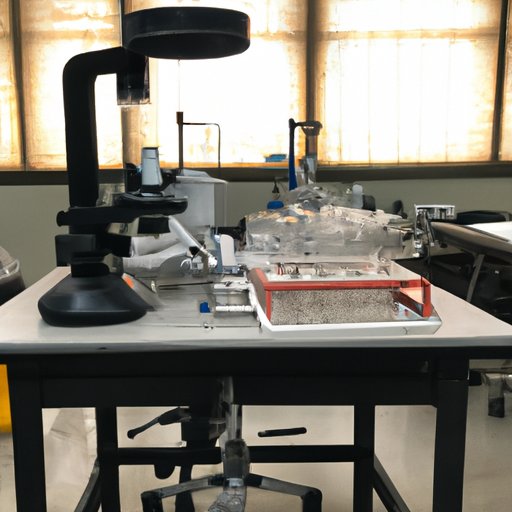
A Look at the Equipment Used in Lab Science
In this section, we will take a look at some of the common pieces of equipment used in lab science.
A. Microscopes
Microscopes are used to observe samples at very small scales. They can be used to examine cells, bacteria, viruses, and other microscopic organisms. Microscopes come in a variety of shapes and sizes, ranging from simple handheld devices to complex, high-powered models.
B. Beakers
Beakers are containers used to hold and measure liquids. They typically have a wide base and a narrow neck, and they come in a range of sizes and materials. Beakers are commonly used in chemistry labs to mix and measure chemicals.
C. Test Tubes
Test tubes are cylindrical containers used to hold and measure liquids. They are usually made of glass or plastic, and they come in a range of sizes. Test tubes are commonly used in biology and chemistry labs to conduct experiments.
D. Computers
Computers are used to store and analyze data, as well as to program robots and other machines. Computers are commonly used in all fields of lab science, but they are especially important in computer science labs.
The Benefits of Studying Lab Science
Studying lab science can provide students with a number of benefits.
A. Hands-on Learning
One of the main benefits of studying lab science is that it provides students with hands-on learning experiences. By conducting experiments in the lab, students can gain a better understanding of scientific concepts and principles.
B. Developing Problem Solving Skills
Another benefit of studying lab science is that it can help students develop their problem solving skills. By designing and conducting experiments, students can learn how to think critically and solve problems.
C. Understanding Scientific Concepts
Finally, studying lab science can help students gain a better understanding of scientific concepts and principles. Through experimentation, observation, and analysis, students can learn more about the world around them.
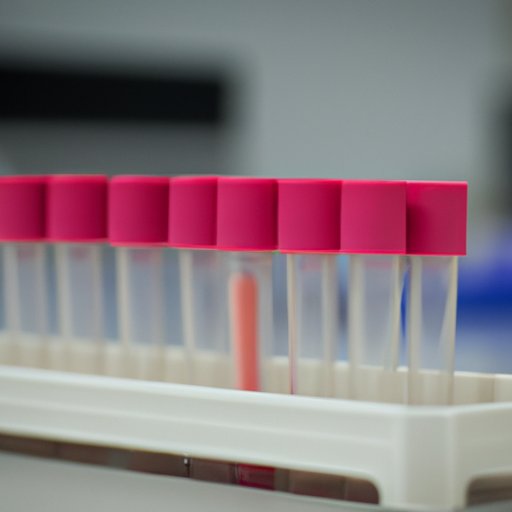
The Future of Lab Science
Lab science is an ever-evolving field, and it is constantly being shaped by new technologies, emerging areas of research, new discoveries, and innovative ideas.
A. Growth of Technology
As new technologies are developed, they are changing the way that lab science is conducted. Technologies such as 3D printing, robotics, and artificial intelligence are making it possible to conduct experiments faster and more accurately than ever before.
B. Emerging Areas of Research
New areas of research are also emerging in lab science. For example, nanotechnology, biotechnology, and quantum computing are some of the newest and most exciting areas of research in lab science.
C. New Discoveries and Innovations
As new technologies and areas of research emerge, new discoveries and innovations are being made in lab science. These discoveries and innovations are helping to shape the future of the field and are opening up new possibilities for scientific exploration.
D. Impact on Society
The discoveries and innovations made in lab science are also having an impact on society. From medical breakthroughs to technological advances, lab science is helping to improve people’s lives and shape the future.
(Note: Is this article not meeting your expectations? Do you have knowledge or insights to share? Unlock new opportunities and expand your reach by joining our authors team. Click Registration to join us and share your expertise with our readers.)
